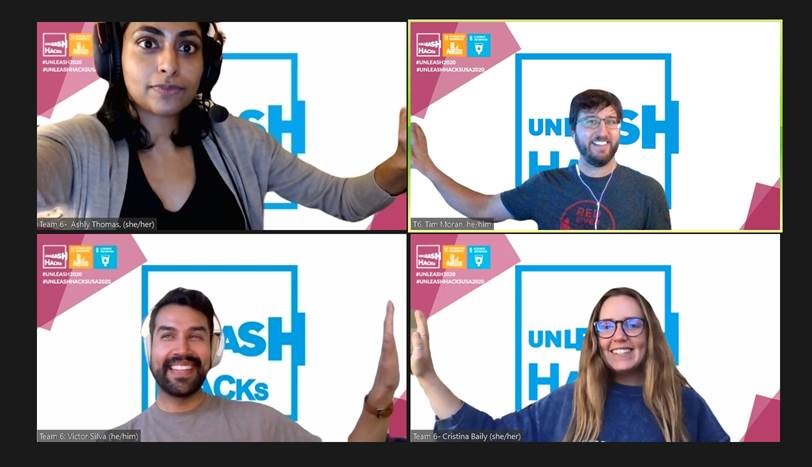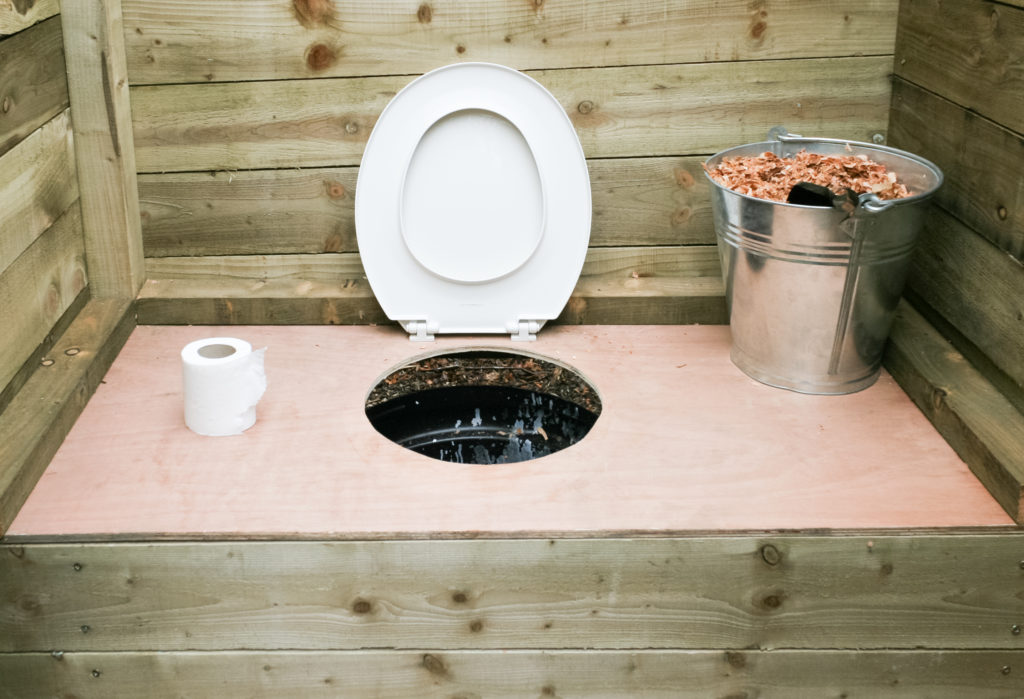Water professionals are sought-after participants in the United Nations’ UNLEASH Hacks program, which convenes talented young researchers, practitioners, and influencers from around the world to develop new solutions to further the United Nations’ Sustainable Development Goals (SDGs) during intensive, 2-day seminars.
Water professionals play a direct role in achieving several of the SDGs, including SDG 6: Clean Water and Sanitation, SDG 9: Industry, Innovation, and Infrastructure, and SDG 14: Life Below Water. However, the crucial services provided by the water sector underpin nearly every SDG, and by working across disciplines, water professionals can use their expertise to provide better outcomes for both the world’s population and the global environment.
In October, a team including water professionals Tim Moran and Ashly Thomas won the top prize in an UNLEASH Hack event intended to further U.S. progress on SDG 11: Sustainable Cities and Communities. Moran is a project manager for water-sector communications consultant Rogue Water (Louisville, Kentucky) and a Water Environment Federation (WEF; Alexandria, Virginia) member while Thomas is a principal engineer at Hazen and Sawyer (Virginia Beach, Virginia).
The WASH Problem
The City of San Francisco estimates that more than 8,000 people within the Bay Area suffer from homelessness. For this vulnerable population, 24/7 access to adequate sanitary facilities is not guaranteed. When homeless people must resort to open urination and defecation and lack dedicated washing facilities, not only do their health, hygiene, and dignity suffer, but it may also contribute to broader public health issues.

In 2014, San Francisco’s city government introduced the Pit Stop program, which operates a growing number of 24-hour public restrooms and needle disposal sites. The program provides a foundation to address water, sanitation, and hygiene (WASH) for people who are homeless, but it is expensive, described Moran. The costs of building and maintaining new Pit Stops impair the program’s effectiveness. According to financial statements, each Pit Stop costs approximately $200,000 per year to operate.
As an alternative, the UNLEASH team proposed Implementing composting latrines – a water-free waste disposal solution common to isolated, un-sewered areas – that could vastly expand the Pit Stop program’s reach.
“We aren’t aware of composting latrines being tried in an urban environment, so we are excited to prove it could work,” Moran said. “Installation of a WASH facility connected to the city’s infrastructure is vastly more expensive than a composting latrine.”
The team’s winning project proposal would install five composting latrines in lower-income San Francisco neighborhoods as a pilot test. It would also include a public education and outreach campaign in these neighborhoods to destigmatize the use of waterless latrines. Not only would the new composting latrines benefit both the city and its homeless population, but also a growing group of additional residents who make their living outside of a fixed location – i.e., delivery workers and ride-share drivers, Moran explained.

Besides Moran and Thomas, the team featured Victor Silva, a thermodynamic engineer for Bloom Energy (Berkeley, California) and Cristina Baily, an environmental engineering student at the University of California, Berkeley. Both are current volunteers for Engineers Without Borders, a WEF charity of choice, where they gained first-hand experience in planning, constructing, and operating low-cost WASH infrastructure in other countries.
The team’s experience as utility engineers, communicators, and aid workers guided their decision to focus on San Francisco’s homeless WASH issue to make progress on SDG 11.
“We knew WASH in America is centralized, uses large infrastructure, and is tied to housing and employment,” Moran said. “WASH exists in the home and the office, but there are many fewer opportunities outside of that to access services.”
UNLEASH Hack judges awarded the team’s proposal first place in its category after the seminar ended on October 11. The team is now working with researchers, the city government, and existing homeless service providers to implement the pilot program, Moran said.
Bringing Talents Abroad
Several Water Environment Federation (WEF; Alexandria, Virginia) members and representatives play active, ongoing roles in the UNLEASH Hack program.
WEF Chief Technical Officer Barry Liner served as a facilitator for four virtual Hacks that occurred in 2020 focusing on Brazil, Ghana, and Liberia, joined by WEF Diversity, Equity, and Inclusion Board Subcommittee Co-Chair Megan Yoo Schneider from Seven Management and Consulting (Orange County, California) for the U.S. Hack.
Each of the four Hack competitions featured experts from among WEF’s membership as judges or consultants, including:
- Nandita Ahuja from Hazen and Sawyer (Hollywood, Florida);
- Lyndsey Broderick from ZFA Structural Engineers (San Francisco);
- Alicia Chakrabarti and Phoebe Snow from the East Bay Municipal Utility District (Oakland, California);
- Ashburn, Virginia-based water engineer Bianca Pinto;
- Akin Babatola from the City of Santa Cruz, California;
- Maria Claudia Reed from Brown & Caldwell (Portland, Oregon);
- Anniestacia Miskel from Arcadis (Mobile, Alabama);
- WEF exhibitor Kevin Sofen; and
- 2020-2021 WEF President Lynn Broaddus.
“WEF and its members are honored by the chance to apply our knowledge about water science, engineering, and outreach to help solve some of the world’s most pressing issues,” Schneider said. “We commend the United Nations for working across borders and disciplines to make Earth a more sustainable, secure, and equitable planet.”
— Justin Jacques, WEF Highlights








December 10, 2020
WEF Resources & Efforts